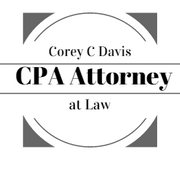Understanding the Differences Between Wills & Trusts

While no one wants to think about their own passing, we owe a responsibility to our family or our business partners to contemplate a future where we’re no longer here. This starts by creating a will and trusts to designate how our assets should be distributed. While an attorney or estate planning professional can better explain the nuances of each, the guide below gives a general overview of their distinguishing features.
What Is a Will?
A will, short for last will and testament, is a legal document that allows you to control the distribution of assets in your estate, which is the property you own when you pass away. If you are a parent, a will is the only way to designate a guardian for your minor children. Wills can include gifts of real and personal property, cash, or pass on ownership of patents, copyrights, and trademark rights. The document should name an executor you trust to carry out the will’s terms, which might include putting a trust you created into effect. If you pass away without a valid will, the state distributes your property and names a guardian for your children according to the law, known as intestate succession law.
What Is a Trust?
 A trust is a legal tool for protecting, managing, and distributing property. Think of a trust as a big safe that can hold all types of assets, including lottery tickets and insurance policies. The numerous types of trusts fall within one of two categories: inter vivos, or living trusts, which take effect while you are alive, and testamentary trusts, which take effect when you pass away.
A trust is a legal tool for protecting, managing, and distributing property. Think of a trust as a big safe that can hold all types of assets, including lottery tickets and insurance policies. The numerous types of trusts fall within one of two categories: inter vivos, or living trusts, which take effect while you are alive, and testamentary trusts, which take effect when you pass away.
To create a trust, an attorney prepares a trust document stating the terms of the trust, what assets you are placing in the trust, designating the person you choose as a trustee to manage the assets, and naming beneficiaries. Trusts protect assets from creditors, provide benefits under tax laws, and pass property to beneficiaries privately without a will or going through probate.
From his offices in Kerrville, TX, Corey C. Davis CPA Attorney at Law offers clients his knowledge and experience as a seasoned tax law attorney and a Certified Public Accountant. Individuals, couples, and business owners turn to him for wise legal advice about wills, trusts, and estate planning. To learn more about how this skilled attorney can help you, visit his website now. Contact his law firm at (830) 257-8800 to schedule a confidential appointment.
About the Business
Have a question? Ask the experts!
Send your question

